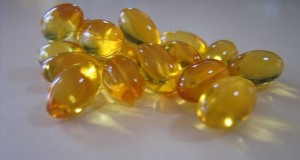
What is sunflower oil?It is what they produce from oil type sunflower seeds. It has a light taste and appearance, a mild flavor and a pale yellow color (if refined). According to numerous sunflower oil reviews, it is a versatile product with both health and beauty benefits; it performs well as an ingredient for cooking and as an excellent emollient in cosmetology.
Kinds of sunflower oil
The National Sunflower Association names three types of sunflower oil:
- high linoleic sunflower oil;
- high oleic sunflower oil (no less than 82% oleic acid);
- mid oleic sunflower oil or NuSun® (no less than 69% oleic acid).
Each kind of sunflower oil possesses its unique qualities. Therefore, sunflower oil successfully meets consumer and market demands.
The first type is the original and most common spread one. According to the sunflower oil reviews of home users, it performs excellently for any cooking needs such as baking, frying or making salad dressing. This type is the highest in polyunsaturated fats. However, it makes linoleic sunflower oil unstable to oxidation and it needs hydrogenation for commercial usage, especially frying.
The second type – high oleic sunflower oil is very high in monounsaturated acid. It is stable without hydrogenation. Therefore, products with this kind of sunflower oil are tans fats free. High oleic sunflower oil has a wide range of uses including many types of frying, bakery, non-dairy creamers and spray coating for cereal, crackers and dried fruit.
YOU MIGHT ALSO BE INTERESTED IN: Sunflower Oil vs Olive Oil vs Canola Oil
The third type was developed by the National Sunflower Association. It is the lowest in saturated fats and has a rather high oleic level with the remainder being linoleic (15-35%). According to the NSA reviews, NuSun® sunflower oil outshines other oils for commercial use. It is very stable, performs excellently for different applications remaining trans fats free. It has optimal health benefits as well. A recent NuSun diet study resulted in conclusion that NuSun® significantly reduced participants’ total and LDL cholesterol. At the same time, an identical olive diet did not show similar heart-healthy benefits.
RELATED: All Facts of Sunflower Oil Nutrition Profile
The preparation of sunflower oil
To get all the benefits the oil can provide with, you should obtain only organic sunflower oil. That means the following:
- the oil is extracted from non-pesticide sunflower seeds;
- no chemicals are used during the extraction;
- no preservatives are added to the prepared product.
Only cold pressed sunflower oil and expeller pressed sunflower oil are organic products. During these ways of extraction, the oil is squeezed from seeds in an expeller press. The difference between the two techniques is the height of temperature under which the process is done. Cold pressed sunflower oil considered preserving more nutrients than expeller pressed oil, which is derived using heat.
On the market we usually see refined sunflower oil; this form the oil is more stable and it can be used for high-heating cooking. But according to Wikipedia, the process of refining – solvent extraction, neutralization, degumming and bleaching removes some of the oil’s nutrients and its rich original flavor and amber color. The amount of free fatty acids, polyphenols, phospholipids and phytosterols lessens. The verdict is that unrefined sunflower oil should be preferred for low- or no-heat dishes.
 Oilypedia.com – Benefits And Uses Of Supplemental and Essential Oils
Oilypedia.com – Benefits And Uses Of Supplemental and Essential Oils 



Pingback: What is Sunflower Oil: the Surprising Va | OilyPedia.com - All about Supplemental And Essential Oils